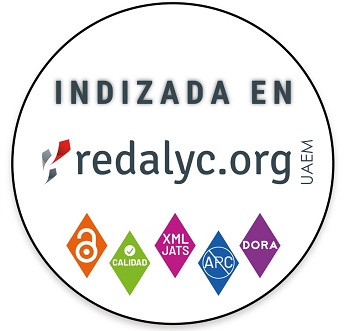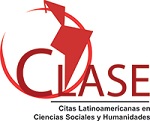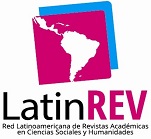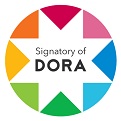Influence of the “Smile” program on collaborative learning in virtual education in university students
DOI:
https://doi.org/10.26490/uncp.horizonteciencia.2023.25.1792Keywords:
Collaborative learning, virtual education, SMILEAbstract
The applied research with experimental design, whose general objective was to determine the influence of the "Smile" program on collaborative learning in virtual education in university students of the National University of Central Peru, the rubric of collaborative learning was used in the pre and post test, the population was 350 students, and for the sample 79 UAEG students were considered for the experimental group and 79 students for the control group. The results of both groups show that the p-value is less than 0.05, so we can say that there is a statistically significant difference between the means of the control and experimental groups, concluding that: The "Smile" program significantly influences in the collaborative learning of the students of the National University of central Peru in the virtual modality. to Spanish
Downloads
References
Aliaga, M. y Soncco, N. (2022). Uso del Google drive y el aprendizaje colaborativo en los estudiantes de ginecología del IX semestre de una universidad privada Huancayo, 2021. [Tesis de maestría, Universidad Continental]. Repositorio institucional. https://hdl.handle.net/20.500.12394/11732
Barragán Sánchez, R. (2005). El portafolio, metodología de evaluación y aprendizaje de cara al nuevo Espacio Europeo de Educación Superior. Una experiencia práctica en la Universidad de Sevilla. Revista Latinoamericana de Tecnología Educativa. 4 (1), pp. 121-139. https://relatec.unex.es/article/view/189
De la Peña, J.I. y Herrera, A. (2012). Formación de competencias profesionales a través de un trabajo cooperativo: resultado de la experiencia. Revista de Docencia Universitaria, 10(1), 291-311. https://doi.org/10.4995/redu.2012.6133
García, A., Basilotta, V. y López, C. (2014). Las TIC en el aprendizaje colaborativo en el aula de Primaria y Secundaria. Comunicar. 42, 65-74. http://dx.doi.org/10.3916/C42-2014-06
Gunawardena, C., Lowe, C. & Anderson, T. (1997). Analysis of a global online debate and the development of an interaction analysis model for examining social construction of knowledge in computer conferencing. [Análisis de un debate global en línea y el desarrollo de un modelo de análisis de interacción para examinar la construcción social del conocimiento en conferencias por computadora] Journal of educational computing research, 17(4), 397-431. https://doi.org/10.2190/7MQV-X9UJ-C7Q3-NRAG
Jarauta B. (2014). El aprendizaje colaborativo en la universidad: referentes y práctica. Universidad de Barcelona, España. Revista de docencia universitaria. 12(4), 64-71 https://doi.org/10.4995/redu.2014.5624
Jonassen, J. y S. Land (2000). Theoretical Foundations of Learning Environments (2nd ed.). Routledge. https://doi.org/10.4324/9780203813799
Keh-Wen, C., & Kuan-Chou, C. (2016). Building a cooperative learning enviroment in a flipped classroom [Construyendo un entorno de aprendizaje cooperativo en un aula invertida] . Academy of Educational Leadership Journal, 20(2), 8-15. https://cutt.ly/4CVuecD
Rivera Covarrubias, L. R., Flores Valencia, L. F., Guzmán Vázquez, L. R., & Sanchez Hernandez , M. N. (2022). Evaluación del uso de recursos tecnológicos en la modalidad virtual como herramienta para la modalidad presencial. Jóvenes en la ciencia. 16, 1–6. https://www.jovenesenlaciencia.ugto.mx/index.php/jovenesenlaciencia/article/view/3737
Rodríguez Mora, Y. (2019). Aprendizaje colaborativo en entornos virtuales. [Tesis de maestría, Universidad Andina Simón Bolívar] https://repositorio.uasb.edu.ec/bitstream/10644/7217/1/T3113-MINE-Rodriguez-Aprendizaje.pdf.
Romero, V., Romero, M., Toala, F., Castro, J., Pin, A., Campozano, Y., y Gruezo, O. (2019). El Flipped Learning, el aprendizaje colaborativo y las herramientas virtuales en la Educación. Editorial Área de Innovación y Desarrollo,S.L.
Van Aalst, J. (2009). Distinguishing knowledge-sharing, knowledge-construction, and knowledge-creation discourses [Distinguir los discursos de intercambio de conocimientos, construcción de conocimientos y creación de conocimientos]. International Journal of Computer- Supported Collaborative Learning, 4(3), 259-287. https://link.springer.com/article/10.1007/s11412-009-9069-5
Zañartu, M. (2003) El aprendizaje colaborativo en el aula universitaria. Contexto educativo: Revista digital de investigación y nuevas tecnologías. https://www.redalyc.org/pdf/761/76102314.pdf
Downloads
Published
Issue
Section
License

This work is licensed under a Creative Commons Attribution-NonCommercial 4.0 International License.
















